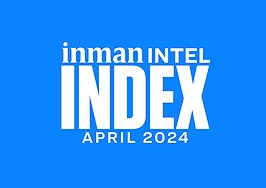On the heels of our first-ever Agent Appreciation month, Inman is leaping into February with our Residential Finance theme month. Join us as we investigate how buying and selling a home is changing, from companies backing consumers in new ways to integrated services that handle the entire transaction.
Back in 2004 and 2005, pretty much anyone could get a mortgage. No proof of income? No problem! The general mentality back then was: “Just sign here, and we’ll get you into that house.” That may be a little bit of an exaggeration, but not much.
The relaxed mortgage rules were not solely responsible for the subprime mortgage crisis that led to the 2007 recession and the collapse of major financial institutions in 2008. Multiple factors contributed. Lenders faced little regulation, and appraisers didn’t get paid if values were not met. Risky loans were sold with good loans, and real estate brokers followed the rules set in place.
After the housing crash of 2008, it became clear that safeguards had be put into place to regulate the housing industry. In 2010, the Wall Street Reform and Consumer Protection Act, better known as Dodd-Frank, was put into place. This Act created agencies that were charged with protecting consumers against mortgage and other credit-related abuse.
In the beginning, the tightening of the regulations over corrected. But, as time passed, regulations became more relaxed, and the housing market corrected.
Technology saves the industry
With the roll-out of an update to Fannie Mae’s and Freddie Mac’s Automated Underwriting System (AUS) around 2010, loan submission became easier and more standardized.
Wade Coble and Lindsey Detreville of Southern Trust Mortgage explain: “The guidelines Fannie and Freddie put in place cleaned out the riff-raff. The AUS became so much better because the data was more uniform. Better data improved the accuracy of credit scores, and loans were now equally framed. The equal mortgages were sold together, creating a more solid investment. Technology saved the industry.”
Lenders now have the ability to pre-approve (not just prequalify)
The industry’s ability to collect and use data in real-time has enabled the industry to underwrite upfront. This helps lenders weed out bad loans early. A borrower’s ability to go through underwriting before purchasing the home speeds up the process. It also strengthens the borrower’s buying power.
In a multiple-offer situation, that borrower’s pre-approval is as good as cash.
New loan programs that have been game-changers
The Federal Housing Administration, United States Department of Agriculture, and the Veterans Administration loan programs continue to be strong options for borrowers, and conventional loans now offer a down payment as little as 5 percent.
But other options have made homeownership a possibility for many that would otherwise not be able to purchase a home. With the introduction of the Mortgage Credit Certificate (MCC), a borrower with a high debt-to-income ratio (DTI) can use the MCC to improve their DTI.
In addition, Freddie Mac and Fannie Mae introduced programs such as Home Possible and Home Ready. These programs help borrowers with lower income limits.
Disrupters in the mortgage industry continue to threaten the traditional lender
In 2020, data and technology run the mortgage industry. Most lenders now offer an app that allows the borrower to input all their data without ever meeting face to face with the lender. This gives monster companies such as Rocket Mortgage an unfair advantage because of its deep advertising pockets.
There is still much to be said about working with the local guy because he knows the traits of the hyperlocal market and can be proactive to avoid common roadblocks. This helps loans close on time with minimal headaches.
The trend seems to be moving more and more toward national lenders, and this is especially true for the preferred lenders of national builders such as D.R. Horton and Pulte. This is forcing local lenders to be more creative at attracting and retaining business.
What we can expect the next 10 years
According to Barry Habib, CEO of MBS Highway, we will see the lowest interest rates in history. He suggests that in the next couple of years, we can expect interest rates to continue to go down about another half-point from where they are now. He also predicts a recession in the next few years. But, historically, recessions have been good for the housing market because they keep interest rates low.
The bad news is that inventory is not expected to level out for several years unless builders can keep up with the demand. Why the housing shortage?
Boomers are living longer and not moving out of their current homes, and the millennials are now at an age where they are buying. It’s all about demographics. The millennials, now aged between 24 and 39, have an average homebuying age around 33.
Current research suggests we may see a housing shortage for at least the next nine years.
Missy Yost is a Realtor with Century21 Diamond Realty in Bluffton, South Carolina. Follow The Yost Group on Facebook or Twitter.














